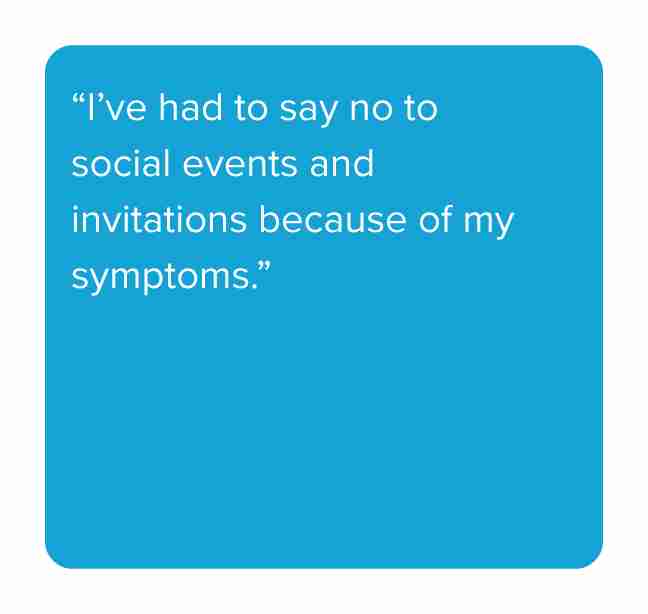When you have an appointment with your doctor or gastroenterologist, do you feel like you’re at a loss of words?
No matter how many times you’ve thought about how you’re feeling living with ulcerative colitis (UC) or what’s really bothering you, you may have forgotten by the time you get around to seeing your doctor. Additionally, describing what’s bothering you isn’t always easy when the pain and discomfort is unnoticeable to outsiders.
But that’s why we’re here for you. Read five common UC symptoms you’re likely experiencing, and five suggestions on how you can better explain exactly what you’re going through. Because finding the right words is trickier than you may expect.
Stomach or abdominal pain and discomfort is a common symptom for UC. The pain can range from dull and mild to sharp and intense. Additionally, you may anticipate a stomach ache based on something you ate. Telling your doctor or gastroenterologist exactly where your pain level is can help them track your symptoms. They may suggest certain lifestyle modifications based on this too, such as eating smaller meals more frequently throughout the day.
UC ranges on a scale from mild to very severe. This classification system is primarily based on how many loose stools an individual has per day: Someone with mild UC has up to four loose tools, moderate is four to six loose stools, severe is more than six bloody, loose stools, and very severe is more than 10 loose stools. If you’re waking up in the middle of the night to get up and use the bathroom, you need to tell your doctor. They can base your treatment plan off this information.

Stress appears to have a role in UC, so worrying about what you have to pack or bring with you before going somewhere may actually make your symptoms worse. Your doctor will likely suggest having a UC kit in your purse, briefcase, or car so you’re always prepared. They may also recommend trying out stress-relieving activities like yoga, tai-chi, or meditation.
While this may seem like an insignificant detail, being specific with your doctor is key to forming an open, honest relationship with them. Letting them know exactly how your condition is affecting you can impact what kinds of medications they will prescribe, what sorts of activities they will suggest, and even what foods to eat and which ones to avoid. Fatigue is a major problem for many UC patients, and it may point to other related complications like anemia.

Nobody should have to skip out on things they used to enjoy because of their UC. While the condition isn’t curable, it is manageable. Telling your friends or family members about your condition may be intimidating at first, but you’ll likely feel relieved knowing that they have a sense of what you’re going through. It can also give you the opportunity to plan events that are more suitable for you and your lifestyle.